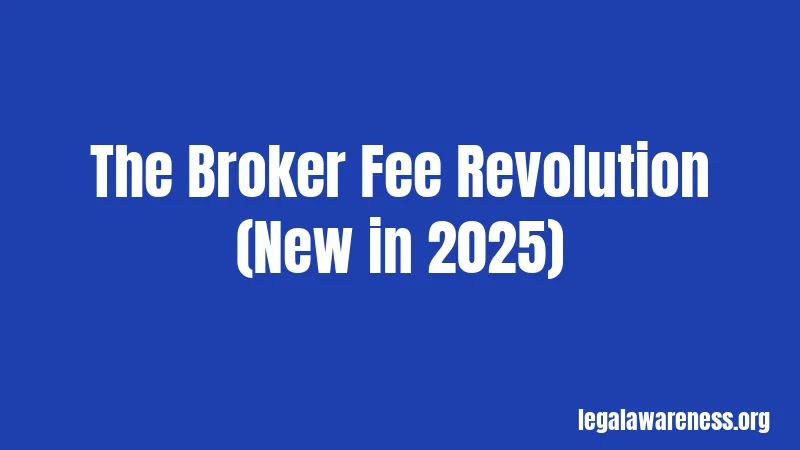Landlord Laws in Massachusetts (2026): What Both Sides Need to Know
Most people living in Massachusetts have no idea how much the landlord-tenant laws actually protect them. Seriously. But here’s the thing—if you’re renting or managing property in Massachusetts, these rules matter. A lot. They can save you money, keep you safe, or save you from serious legal trouble. Let’s break down exactly what you need to know.
This guide covers the major landlord laws in Massachusetts for 2026. Whether you’re a tenant wanting to understand your rights or a landlord trying to stay compliant, we’ve got you covered. The good news? Massachusetts law is actually pretty clear about what’s allowed and what’s not.
What Exactly Are Landlord Laws?

Landlord-tenant laws are the rules that govern the relationship between people who rent and the people who own properties. They cover rent, repairs, security deposits, evictions, and way more. These laws exist to make sure both sides play fair.
Think of it like a rulebook for living arrangements. You’re gonna love this—these laws apply automatically. Even if you never sign a lease, these protections exist. The law says so.
The Big Rules About Money
Security Deposits
Here’s what landlords can actually charge when you move in. A lot of people get this wrong.
Your landlord can ask for first month’s rent, last month’s rent, a security deposit, and the actual cost of changing the lock. That’s literally it. No application fees. No pet fees. No “move-in fees.” No background check charges. Nothing else.
The security deposit can’t be more than one month’s rent. If your rent is $1,500, the deposit tops out at $1,500. No exceptions. That money has to go into a special bank account that earns interest. Every year, your landlord must either pay you the interest or let you deduct it from rent.
When you move out, your landlord has 30 days to return your deposit. If they don’t, you can actually sue for three times the amount plus interest and attorney’s fees. That’s not a light penalty. Trust me, landlords take this seriously now.
Confused about what counts as damage? Here’s the deal. Landlords can only deduct for damage beyond “normal wear and tear.” Small holes from nails? That’s normal wear and tear. Huge holes in the wall? That’s damage. Faded paint? Normal wear and tear. Ripped carpet from pets? Damage.
Rent and Late Fees
In Massachusetts, rent is due when the lease says it’s due. Landlords have to give tenants a 30-day grace period before charging late fees. Seriously—30 days late before any penalty kicks in. After that, landlords can charge late fees. There’s no state cap on how much, but most landlords charge 4-5% of monthly rent to stay reasonable.
Landlords cannot charge late fees before the rent is 30 days overdue. Any lease that includes earlier late fees is against the law.
Okay, pause. Here’s where it gets interesting. Landlords also cannot raise rent during a fixed-term lease. If you signed a one-year lease, your landlord can’t raise rent mid-lease. But for month-to-month tenants, landlords need to give at least one full rental period notice (usually 30 days) before raising rent.
The Broker Fee Revolution (New in 2025)

This one’s probably the most important change in recent years. Starting August 1, 2025, landlords can no longer require tenants to pay broker fees. This is huge.
For decades, Massachusetts renters paid broker fees just to get an apartment. These fees could be a month’s rent or more. Now? Only the person who hires the broker pays. If your landlord hired a broker to list the unit, your landlord pays. If you hired a broker to help you find a place, you pay.
This might sound simple, but it saves families thousands of dollars. The law is clear—landlords cannot pass broker costs to tenants. Doing so is a violation of consumer protection law. Landlords cannot charge “application fees,” “move-in fees,” or any other similar charges either.
You’re not alone if you’ve been hit with illegal fees in the past. Many people were. If you believe a landlord or broker violated this rule, you can file a complaint with the Massachusetts Attorney General at 617-727-8400.
What Landlords Must Provide (The Habitability Rules)
Here’s the bottom line: Massachusetts law says landlords must provide safe, clean, and healthy housing. This is called the “Warranty of Habitability.” It’s not optional.
Landlords must provide and maintain heat. We’re talking at least 68 degrees during the day (September 15 to May 31) and 64 degrees at night. No heat? That’s a serious violation. Hot water must be available 24/7. Electricity, water, plumbing—all of it needs to work.
The kitchen needs a working stove, oven, and refrigerator. Your bathroom and kitchen need sinks with running water. All windows and doors need working locks. Floors, ceilings, and walls must be solid and leak-free.
Landlords must also keep the place free from rodents and cockroaches. This is non-negotiable. If you see pests, tell your landlord right away in writing.
Repairs and the 14-Day Rule

Let’s talk about what happens when something breaks. Your landlord must make repairs within a reasonable time—usually 14 days after you give written notice.
And honestly, this is the part most people miss. You need to give written notice. A text message counts. An email counts. Even a note works. But get it in writing so you have proof. Say exactly what’s broken and when you reported it.
If your landlord doesn’t fix it in 14 days, you have serious options. You can withhold rent. You can make the repairs yourself and deduct the cost from rent (up to 4 months’ worth per year). You can call your local Board of Health to inspect. You can even file a “Tenant Petition” asking a judge to order repairs.
For serious problems—like no heat, no hot water, or broken plumbing—the landlord must make a good faith effort to fix it within 24 hours of notice from the Board of Health.
Landlord Entry and Your Privacy
Landlords cannot just walk into your apartment whenever they want. This is your home. You have privacy rights.
Here’s the rule: Landlords can only enter for repairs, inspections, to show the apartment to prospective tenants or buyers, or in genuine emergencies (like a fire or flood). They must give you advance notice—usually at least 24 hours—and arrange a time that works for both of you.
You have the right to be there when your landlord enters. Landlords cannot show up unannounced unless there’s a real emergency that could damage the whole building. Making you uncomfortable? That’s not a legal reason to enter.
Evictions in Massachusetts
Wondering if a landlord can just kick you out? The short answer is no. Not without court.
Massachusetts requires landlords to follow a strict legal process. They must give you written notice first, called a “Notice to Quit.” For nonpayment of rent, that’s usually 14 days’ notice. For other lease violations, it’s typically 7 days’ notice. If you’re an at-will tenant (month-to-month), your landlord must give at least 30 days’ notice to end your tenancy.
After giving notice, if you don’t leave, the landlord must file a case in Housing Court. You get a chance to defend yourself. You can argue that your landlord violated the law, that the notice was improper, or that the apartment isn’t habitable.
Self-help evictions are completely illegal. Your landlord cannot shut off utilities, lock you out, or remove your belongings. If they try, that’s a crime.
Important: Your landlord cannot evict you for retaliatory reasons. Did you report your landlord to the Board of Health? Request repairs? Join a tenant union? These are protected actions. Your landlord cannot evict you for doing these things.
Fair Housing Protections
This is critical. Landlords cannot discriminate.
Massachusetts law covers more protected classes than federal law does. Your landlord cannot discriminate based on race, color, religion, national origin, disability, familial status, gender, sexual orientation, gender identity, age, or source of income (like Section 8 vouchers). Genetic information is also protected.
Breaking fair housing laws can get expensive. Settlements in recent years have ranged from $20,000 to $35,000.
Not sure if something was discriminatory? It probably was if it treated you differently than someone else. Keep written records of everything. If you believe you’ve been discriminated against, contact the Department of Housing and Urban Development (HUD).
Lease Agreements and What Goes in Them
Massachusetts landlords can include reasonable rules in leases. Guests, subletting, pet policies, parking—all fair game.
But there are limits. Landlords cannot include terms that waive their legal obligations. They cannot ask you to waive basic rights like the right to a habitable apartment or access to repairs. Any term that contradicts state law is unenforceable.
The lease must include the landlord’s name and address, the security deposit details, and which utilities are included. Landlords should also provide a “Statement of Condition” before you move in, describing existing damage so you don’t get charged for it later.
What Happens With Tenancy at Will
Some people rent month-to-month instead of signing a lease. This is called “tenancy at will.”
The rules are still the same—landlord must provide a safe, habitable place. Repairs still need to happen in 14 days. Security deposits still max out at one month’s rent. The main difference is that either party can end the tenancy with proper notice (usually 30 days).
Special Situations
Heat and Utilities
Heat is serious. Massachusetts law requires minimum temperatures. If your landlord fails to provide heat and temperatures drop below 64 degrees at night or 68 degrees during the day, that’s a material violation. You don’t have to pay rent. Your landlord is breaking the law, and the Attorney General can take action against them.
Rent Withholding (The “Repair and Deduct” Right)
Tenants have a legal right to withhold rent if the landlord fails to make necessary repairs. You can even make repairs yourself and deduct the cost from your next month’s rent—up to 4 months’ worth per year.
To do this correctly, write your landlord, explain what needs fixing, and say you’ll withhold rent if repairs aren’t made in 14 days. Keep that letter. Do not tell your landlord verbally. This needs to be documented.
Discrimination and Source of Income
Recent Massachusetts cases show a rise in “source of income discrimination”—landlords refusing to rent to people with vouchers or subsidies. This is illegal. Your landlord cannot ask where your money comes from or refuse to rent based on it.
How to Report a Landlord Violation
If your landlord breaks the law, you have options. Don’t suffer in silence.
Call the Attorney General’s Office: 617-727-8400. They handle complaints about illegal fees, broker violations, and consumer protection issues.
Contact your Board of Health: They inspect properties for code violations and can order repairs.
File a Tenant Petition: Ask a court to order repairs or compensation.
Get free legal help: Greater Boston Legal Services and MassLegalHelp.org offer free assistance to low-income renters.
Housing Court: You can file cases here for housing violations, and you have the right to represent yourself or bring a lawyer.
Frequently Asked Questions
Can my landlord charge an application fee?
No. Massachusetts law explicitly prohibits application fees. This has been illegal for years. If you’ve been charged one, you may have grounds to sue.
What if my landlord won’t return my security deposit?
You can sue for three times the amount you’re owed, plus 5% interest, court costs, and attorney’s fees. This gives you serious leverage. Courts take this seriously.
Can my landlord raise my rent whenever they want?
During a lease term, no. Your landlord cannot raise rent mid-lease unless the lease explicitly allows it. For month-to-month tenants, landlords must give at least 30 days’ notice before raising rent.
Can I break my lease early?
Usually not without penalty. But you can break a lease if the apartment becomes uninhabitable and your landlord refuses to fix it. You can also break a lease if your landlord retaliates against you for a protected action.
What is “normal wear and tear”?
Faded paint, minor scuffs, small nail holes, worn carpet, and normal depreciation from living there. Your landlord cannot charge you for these. Damage beyond normal living is what your security deposit covers.
Can my landlord enter my apartment without notice?
Only in genuine emergencies—like a fire, flood, or gas leak. Your landlord cannot enter just because they feel like it. Always demand 24 hours’ notice and arrange a convenient time.
What’s the difference between eviction for “cause” and “no cause”?
Eviction for cause means you broke the lease or didn’t pay rent. No-cause eviction means your landlord wants you to leave for any other reason. Either way, proper notice and a court process are required. Your landlord cannot remove you without court order.
Final Thoughts
Now you know the basics of Massachusetts landlord-tenant law. Stay informed. Know your rights. Keep records of everything—notices, repairs requests, communications, rent payments. If something feels illegal, it probably is.
Massachusetts law is actually pretty renter-friendly compared to other states. But landlords have rights too. When both sides follow the rules, the system works. When someone tries to cut corners, the law has their back.
When in doubt, reach out. Contact the Attorney General, your Board of Health, or a local legal aid organization. Don’t let illegal landlord behavior slide. And landlords—follow the law. The penalties aren’t worth it, and good tenants appreciate knowing they’re being treated fairly.
You’ve got this. Now go rent smart.
References
- Massachusetts Attorney General’s Guide to Landlord and Tenant Rights
- Massachusetts General Laws Chapter 186 – Estates for Years and At Will
- AG’s Advisory on Broker Fees (August 1, 2025)
- Massachusetts Legal Help – Housing Resources
- Frequently Asked Questions About Residential Rental Broker’s Fees
- Massachusetts Law About Winter Heating
- Greater Boston Legal Services – Landlord Tenant Issues
- Tenant Rights Information Portal
